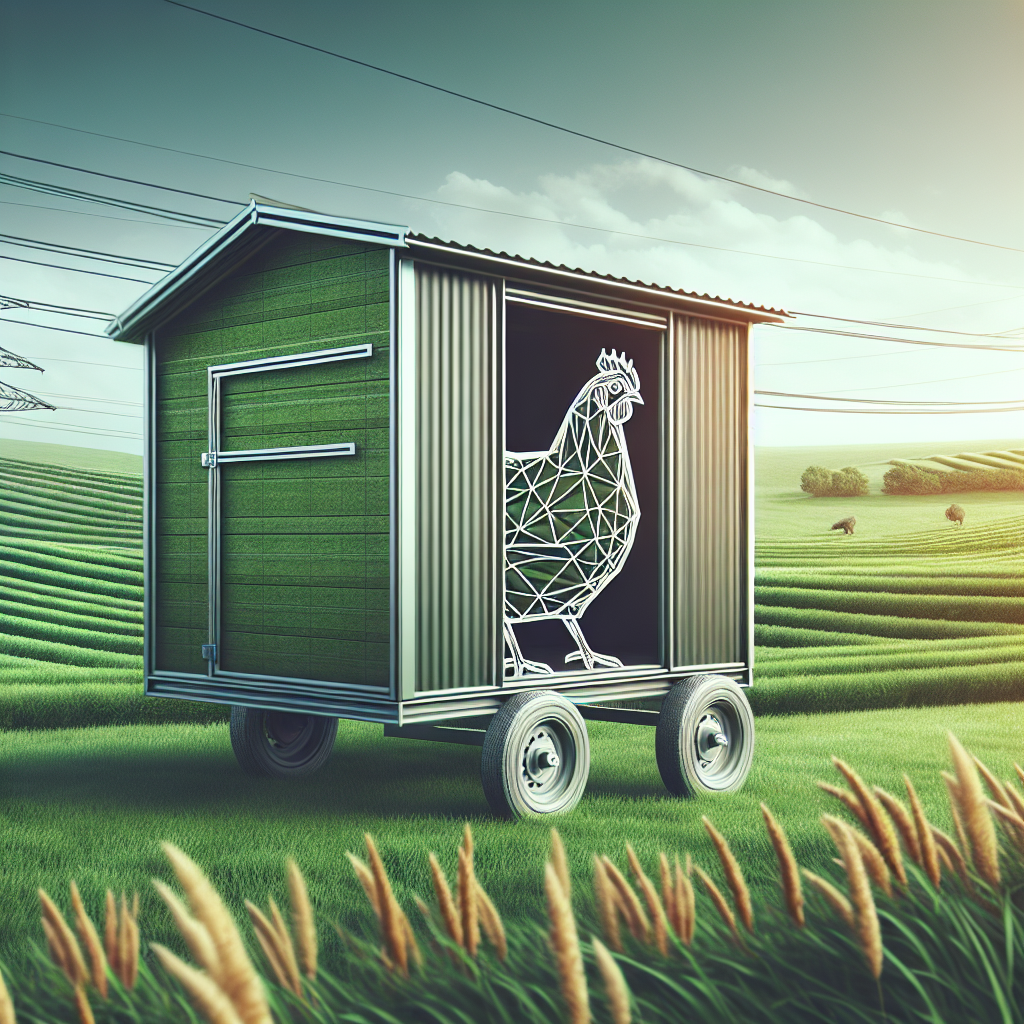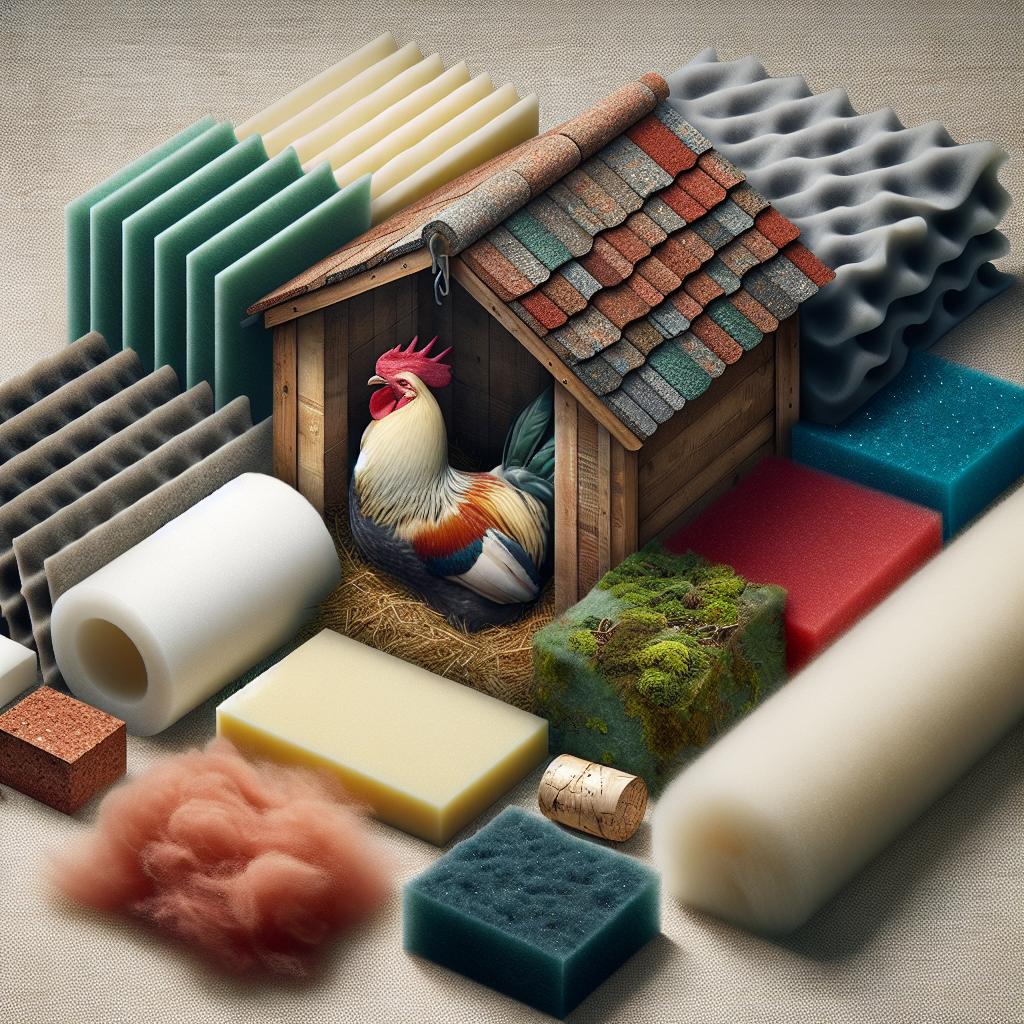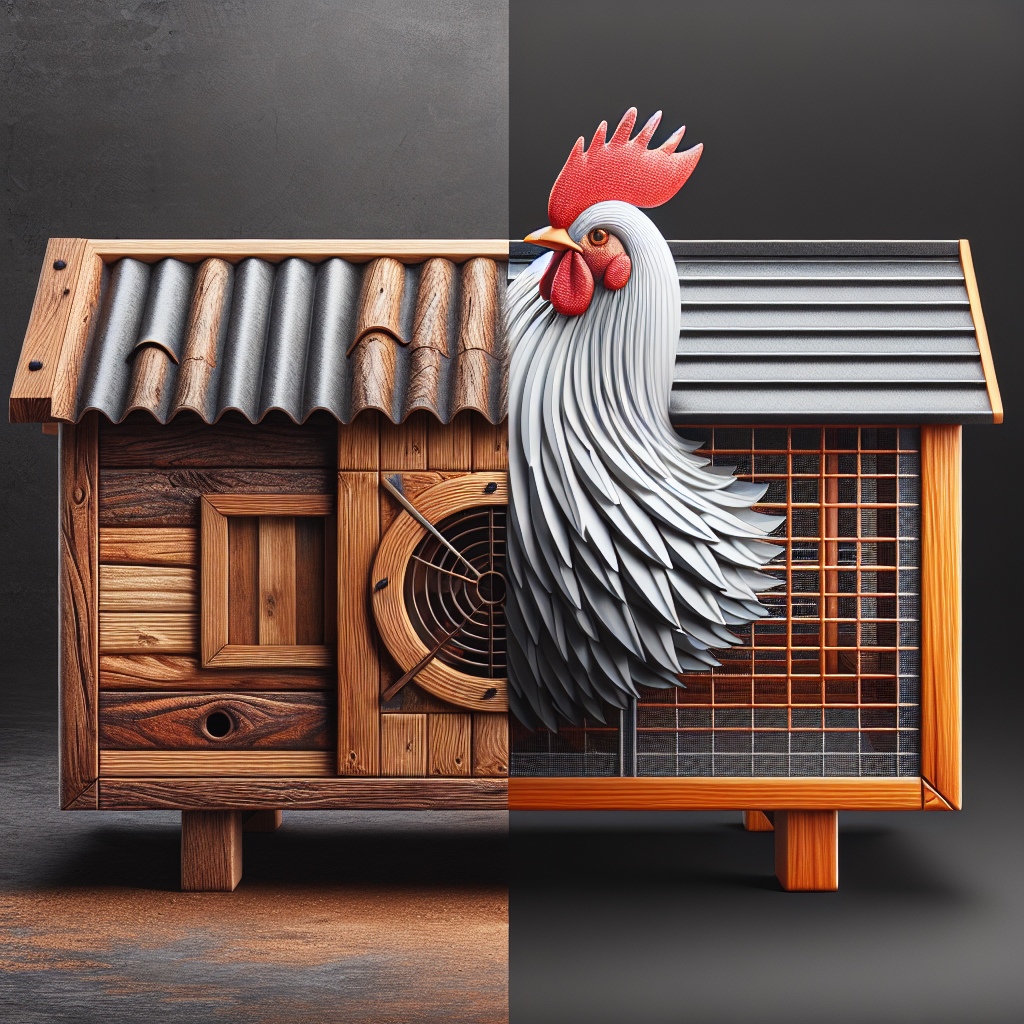If you’ve ever considered raising chickens but are unsure about the best materials for mobile or tractor coops, you’ve come to the right place. In this article, we will explore whether there are specific coop materials that are particularly well-suited for these types of coops. Whether you’re a seasoned chicken farmer or a beginner looking to embark on this rewarding journey, finding the right materials can make all the difference in ensuring the comfort and safety of your flock. So let’s dive in and discover the top choices for mobile or tractor coops!
What are mobile and tractor coops?
Mobile coops and tractor coops are types of housing structures designed for keeping poultry or other small animals on the move. These coops offer flexibility and convenience, allowing you to easily move them to different locations as needed.
Mobile coops
Mobile coops, also known as portable coops, are lightweight and designed to be easily disassembled and moved from one place to another. They often have wheels or a towing mechanism, allowing you to attach them to a vehicle and tow them to new locations. Mobile coops are ideal for people who have limited space or frequently change the location of their poultry flock.
Tractor coops
Tractor coops, on the other hand, are built on a frame with wheels or skids permanently attached to the bottom. These coops are larger and usually more sturdy than mobile coops. Tractor coops are designed to be easily moved around your property, providing your poultry with fresh grazing areas and protecting them from predators. They are particularly useful for rotational grazing systems or for those who want to provide their birds with access to fresh pasture regularly.
Importance of coop materials for mobile and tractor coops
When selecting materials for your mobile or tractor coop, it’s important to consider several factors to ensure that the coop meets your specific needs. The materials chosen play a crucial role in determining the portability, durability, and functionality of the coop.
Portability
One of the primary advantages of mobile and tractor coops is their ability to be moved easily. Choosing lightweight materials and components that can be disassembled quickly will make it easier to transport the coop to different locations. Additionally, the design of the coop should include features such as wheels or towing mechanisms to facilitate easy movement.
Durability
Mobile and tractor coops need to be built to withstand frequent assembly, disassembly, and movement. The materials chosen should be able to withstand various weather conditions, such as rain, wind, and heat, without deteriorating quickly. Durability is especially important for tractor coops, which may be subjected to more wear and tear due to their larger size.
Functionality
The materials used in the construction of the coop should support its intended functions. Consider factors such as insulation for temperature control, ventilation for airflow, and access points for cleaning and maintenance. The chosen materials should also be compatible with any additional features you may want to add, such as nesting boxes or feeding systems.
Factors to consider when choosing coop materials
When selecting coop materials, there are several factors you should take into account to ensure that they are suitable for your mobile or tractor coop.
Weight
Since portability is a key consideration, it’s important to choose materials that are lightweight. Avoid using heavy materials that could make moving the coop difficult or require special equipment. Lighter materials will also make assembly and disassembly easier, saving you time and effort.
Security
The chosen materials should be durable enough to provide adequate security for your poultry. It’s important to choose materials that can withstand attempts by predators to break into the coop, such as sturdy walls and secure doors. Additionally, consider using materials that minimize gaps or openings where predators could access the coop.
Cost
The cost of the materials is another important factor to consider. Determine your budget and find materials that fit within it. Keep in mind that cheaper materials may not always offer the same level of durability or functionality as more expensive options. Strike a balance between cost and quality to ensure that you are getting the best value for your investment.
Climate resistance
Consider the climate in your area and choose materials that can withstand the specific weather conditions. For example, if you live in an area with heavy rainfall, using materials that are resistant to moisture and decay is essential. Similarly, if you experience extreme temperatures, choose materials that provide insulation to keep your birds comfortable.
Wooden materials
Wood is a popular choice for coop construction due to its natural aesthetic appeal and versatility.
Advantages of wood
- Wood is readily available and can be easily sourced from local suppliers or recycled materials.
- It is relatively affordable compared to other materials.
- Wood offers good insulating properties, helping to regulate the internal temperature of the coop.
- It is easy to work with, allowing for customization and modifications to suit your specific needs.
Disadvantages of wood
- Wood may be susceptible to rot and decay if not properly treated or maintained.
- It can be heavier compared to other materials, which may impact the portability aspect of mobile coops.
- Wood may attract pests such as termites or rodents if not adequately protected.
Suitability for mobile or tractor coops
Wood is suitable for both mobile and tractor coops, although it may be more commonly used in tractor coops due to its weight. Mobile coops can benefit from using lighter wood materials or incorporating wood as part of a hybrid design with other materials.
Metal materials
Metal is another option for coop construction, offering durability and strength.
Advantages of metal
- Metal is highly durable and can withstand various weather conditions, including wind and rain.
- It is resistant to pests and can offer better security compared to other materials.
- Metal is easy to clean and maintain, reducing the risk of disease transmission among your poultry.
- It is relatively lightweight, making it suitable for mobile coops.
Disadvantages of metal
- Metal can become hot in direct sunlight, potentially causing discomfort to your poultry.
- Corrosion can occur if metal materials are not properly treated or coated.
- Noise from rain or hail hitting the metal surface can be loud and disruptive to your poultry.
Suitability for mobile or tractor coops
Metal materials are well-suited for both mobile and tractor coops. Their durability and resistance to pests make them a popular choice for protecting your poultry, while their relative lightweight nature allows for easy movement.
Plastic materials
Plastic materials have gained popularity in recent years due to their lightweight and low-maintenance properties.
Advantages of plastic
- Plastic coops are lightweight and easy to move, making them ideal for mobile designs.
- They are resistant to rust and corrosion, making them more durable than metal in certain climates.
- Plastic is easy to clean and sanitize, reducing the risk of disease transmission.
- Plastic materials are often cheaper compared to wood or metal alternatives.
Disadvantages of plastic
- Plastic may not offer the same level of insulation as other materials, making temperature control more challenging.
- Some plastic materials may degrade over time when exposed to UV rays or extreme temperatures.
- Depending on the quality of the plastic, it can be prone to cracking or breaking under stress.
Suitability for mobile or tractor coops
Plastic materials are well-suited for mobile coops due to their lightweight nature and ease of movement. However, they may not be as suitable for tractor coops, where durability and insulation properties are often more essential.
Wire mesh materials
Wire mesh is commonly used as a material for coop walls, providing ventilation and security.
Advantages of wire mesh
- Wire mesh allows for good airflow and ventilation, preventing the coop from becoming stuffy or overheated.
- It provides a clear view of the inside, allowing you to easily monitor your poultry.
- Wire mesh is highly effective at keeping predators out while allowing your birds to see their surroundings.
- It is lightweight and easy to install.
Disadvantages of wire mesh
- Wire mesh alone may not offer sufficient protection against certain predators, such as small rodents.
- Depending on the gauge, wire mesh may not be as durable as other materials and can be prone to damage over time.
- Additional insulation may be needed to keep your poultry comfortable in colder climates.
Suitability for mobile or tractor coops
Wire mesh is a suitable material for both mobile and tractor coops, especially for walls or partitions. It allows for excellent airflow and visibility, while also providing a level of security against potential threats.
Alternative materials
In addition to wood, metal, plastic, and wire mesh, there are alternative materials that can be used for coop construction.
Fiberglass
Fiberglass offers excellent insulation properties and is lightweight, making it a suitable material for mobile and tractor coops. However, it can be more expensive than other options and may not be readily available.
Polypropylene
Polypropylene is a durable plastic material that is resistant to harsh weather conditions and UV rays. It is easy to clean and maintain, making it suitable for both mobile and tractor coops. However, it may not provide the same level of insulation as other materials.
Composite materials
Composite materials, such as recycled plastic lumber or wood-plastic composites, offer a combination of durability, insulation, and sustainability. They are often more expensive than traditional materials but offer long-term benefits and reduce environmental impact.
Choosing coop materials for specific needs
Different coop materials may be more suitable for specific types of coops.
Mobile coops
For mobile coops, lightweight materials are essential. Consider using plastic or lightweight metal options, as they provide the necessary durability while minimizing the overall weight of the coop. Wire mesh can be incorporated into the design to allow for ventilation and security.
Tractor coops
Tractor coops can accommodate slightly heavier materials due to their design. Wood, metal, or composite materials may be appropriate, as they offer better insulation and increased durability. Wire mesh can still be utilized for specific areas, such as windows or ventilation panels.
Conclusion
When selecting coop materials for mobile or tractor coops, it’s crucial to consider factors such as portability, durability, functionality, weight, security, cost, and climate resistance. Each material has its own advantages and disadvantages, and the suitability will depend on your specific needs and preferences. By understanding the unique characteristics of different materials, you can choose the best options for your mobile or tractor coop, providing a comfortable and secure environment for your poultry.




